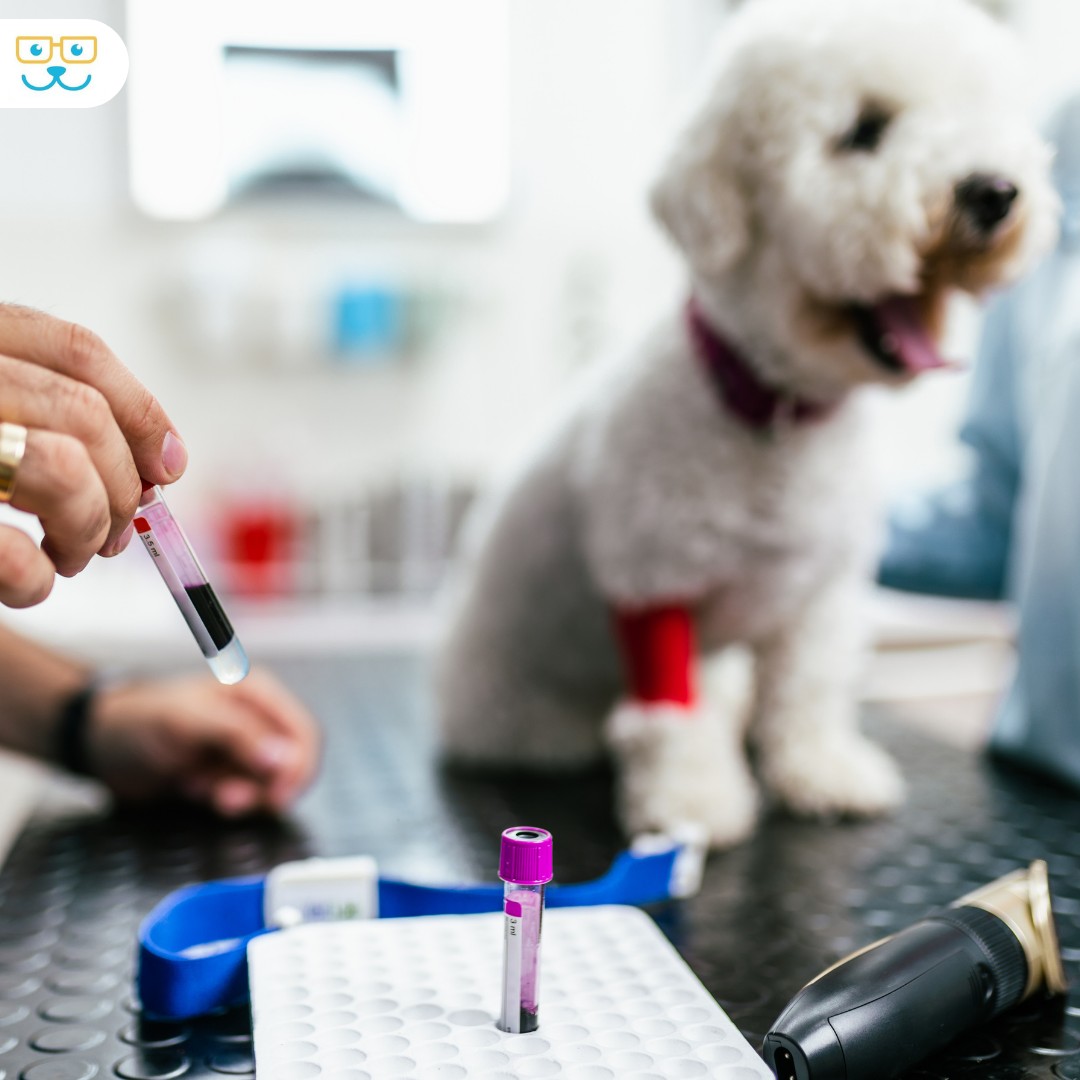Blood Tests at Prelax
Prelax Vets is equipped with the IDEXX Vet Lab Station, providing all animal diagnostic results in one convenient location. We take pride in offering state-of-the-art IDEXX machines that deliver quick and accurate results. These high-quality machines are capable of conducting routine lab tests or identifying specific diseases, helping veterinarians around the world by offering diagnostic and information technology-based services.
Animal pathological tests are essential for identifying underlying health issues in pets, such as uneasiness, fever, loss of appetite, vomiting, and bloody diarrhea. At Prelax, we bring world-leading animal diagnostic equipment to Jhansi, customized for all breeds and species of pets, ensuring precise results.
With our advanced technology, we can deliver results in as little as 8-15 minutes, so you won’t have to wait in long queues to get your pet tested.
The NSAID therapy panel is used to analyze liver and kidney damage. This test helps detect issues like liver cirrhosis, liver cancer, kidney injury, and more.
Number of tests: 6
- ALKP: Alkaline phosphatase – Blockage of bile duct, gallbladder stones, etc.
- BUN: Blood urea nitrogen – Kidney injury, liver cirrhosis, hepatitis, etc.
- CREA: Creatinine – Impaired kidney function or kidney disease
- BUN/CREA: The ratio indicates tubular necrosis, protein deficiency, liver disease, or elevated uremia.
- ALT: Alanine aminotransferase – Liver malfunction
- AST: Aspartate aminotransferase – Liver infection, cirrhosis, and damage.
Sample required: Whole blood/plasma
Time taken:13 minutes
The Chem 17 panel is a comprehensive chemistry profile that evaluates proteins, enzymes, cholesterol, and glucose levels to assess the functional capacity of critical organs like the liver, kidney, and pancreas.
Number of tests: 17
- ALB: Albumin – Blood test to assess liver function.
- ALB/GLOB: Albumin-globulin ratio.
- ALKP: Alkaline phosphatase – Liver and bone disease.
- ALT:Alanine aminotransferase – Liver function.
- AMYL: Amylase – Pancreatic function.
- BUN/CREA: Ratio of blood urea nitrogen and creatinine.
- BUN:Blood urea nitrogen – Kidney function.
- Ca:Calcium – Bone and kidney health.
- CHOL:Cholesterol – Lipid metabolism.
- CREA:Creatinine – Kidney function
- GGT:Gamma-glutamyl transferase – Liver health.
- GLOB: Globulin – Immune function.
- GLU: Glucose – Sugar metabolism.
- LIPA: Lipase – Pancreatic health.
- PHOS: Phosphate – Bone and kidney health.
- TBIL: Total bilirubin – Liver function.
- TP: Prothrombin time test – Blood clotting function.
Sample required:Whole blood/plasma
Time Taken: 8 Minutes
This test measures the total amount of albumin and globulin in the plasma portion of blood to evaluate overall health.
Number of tests: 3
- Albumin
- Globulin
- A/G ratio:Albumin-to-globulin ratio.
Sample required:Whole blood/plasma/serum
Time taken:8 minutes
The creatinine test measures the level of creatinine, a waste product that comes from muscles and is filtered out through urine. Elevated levels of creatinine indicate potential kidney damage or dysfunction.
Number of tests: 1
Sample required:Whole blood/serum
Time taken:8 minutes
A CBC analyzes the number and appearance of blood cells. This test is crucial for diagnosing and monitoring various diseases and infections. It provides important information about red blood cells (RBCs), white blood cells (WBCs), and platelets.
Number of tests: 12
- HCT:Hematocrit – Percentage of red blood cells.
- HGB:Hemoglobin – Oxygen-carrying protein.
- MCHC:Mean corpuscular hemoglobin concentration.
- WBC: White blood cell count.
- GRANS: Granulocytes – Type of white blood cell
- NEUT: Neutrophils – A type of white blood cell
- L/M: Lymphocytes/Monocytes.
- PLT: Platelet count.
- NRBCS: Nucleated red blood cells
- FIBRIN: Fibrinogen – Involved in blood clotting.
- RETICS:Reticulocytes – Immature red blood cells.
Sample required: 100 microliters of blood (4-5 drops)
Time taken:6 minutes
The parasite blood test detects various parasites that can affect pets, including infections from bacteria, viruses, and other pathogens.
For Dogs:
- Leptospira
- Anaplasma
- Heartworm
- Lyme disease
- Ehrlichia
- Leishmania
For Cats:
- Heartworm
- Feline leukemia virus (FeLV)
- Feline immunodeficiency virus (FIV)
- Feline proBNP test (for cardiac failure)
- Canine pancreas-specific lipase




